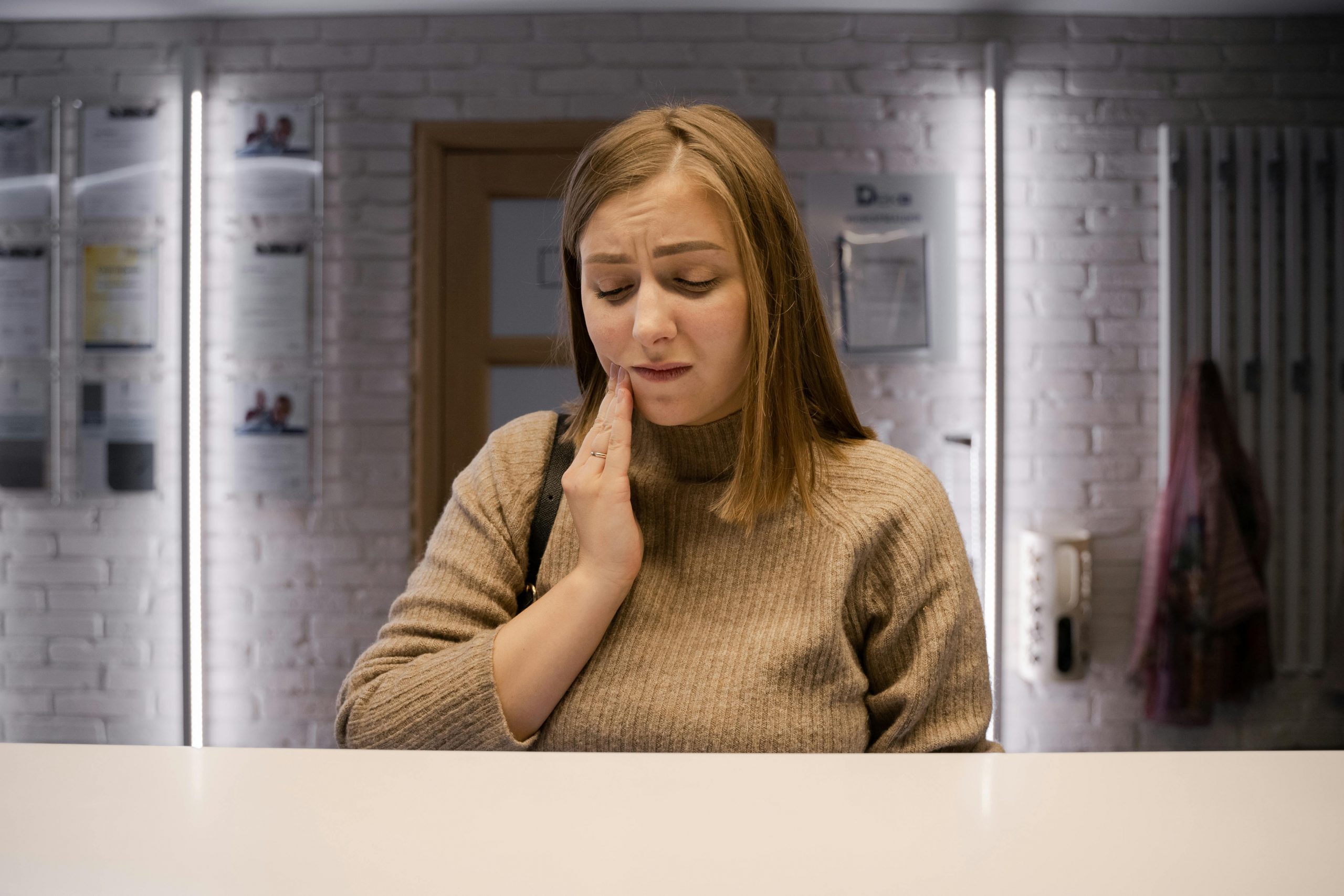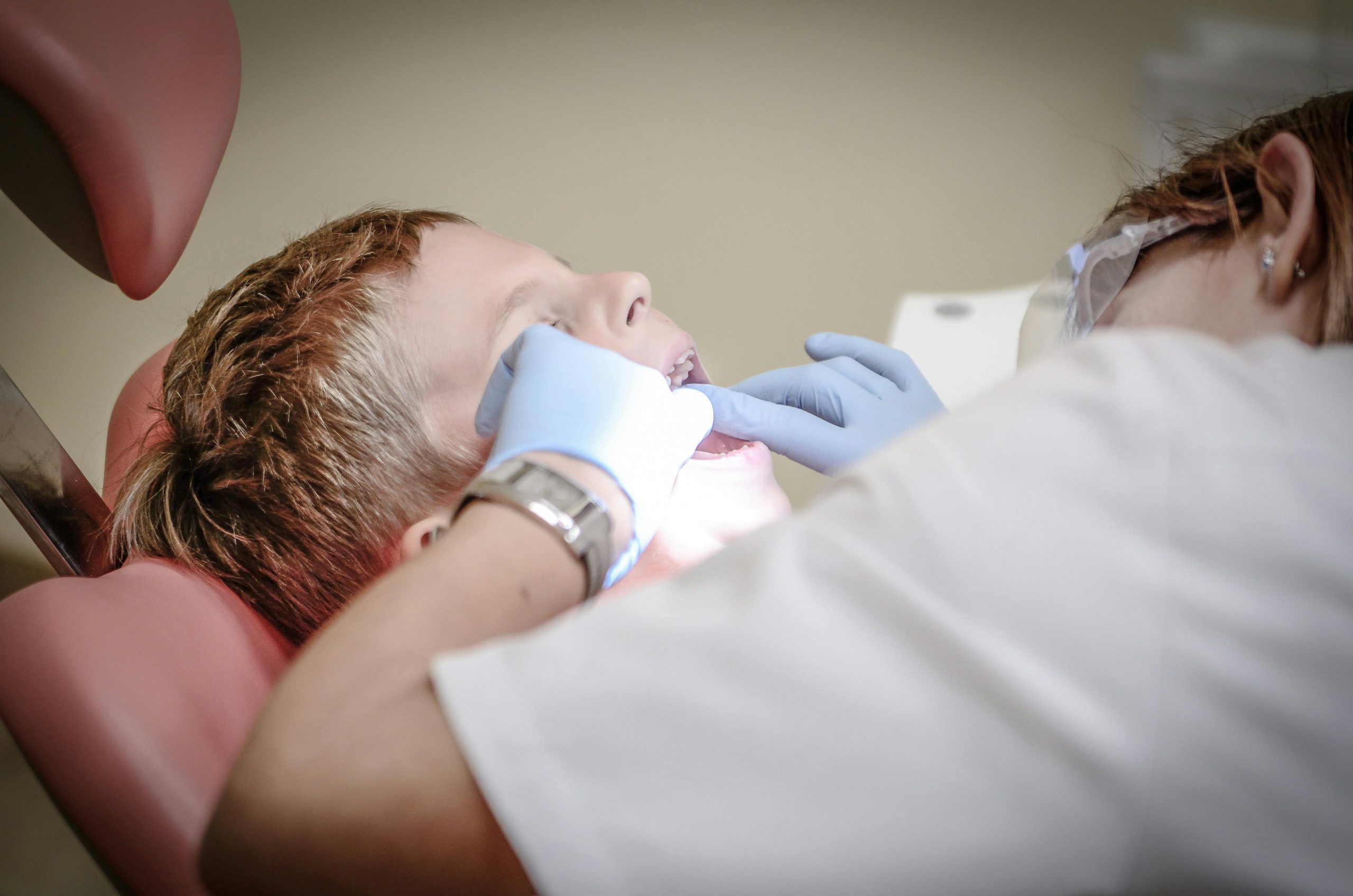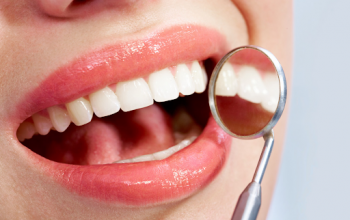

Tooth pain when you bite down can be surprising, frustrating, and sometimes alarming. While it may seem minor at first, this type of discomfort often points to an underlying dental problem that needs attention. From cavities and cracked teeth to gum infections or bite misalignment, several conditions can trigger pain during chewing.
This guide explains the most common causes of tooth pain when biting down, how to identify them, and what steps you can take to relieve discomfort and protect your smile.
Common Causes of Tooth Pain When Biting Down

Pain when you bite isn’t always about sensitivity — it often indicates a specific dental issue. Here are the most frequent culprits:
1. Tooth Decay or Cavities
Cavities occur when plaque and bacteria erode your tooth enamel, creating tiny holes or soft spots. As the decay progresses toward the dentin and pulp, the tooth becomes sensitive to pressure.
Symptoms of cavities include:
- Sharp or dull pain when biting or chewing
- Sensitivity to sweet, hot, or cold foods
- Visible holes or dark spots on teeth
- Persistent bad breath or unpleasant taste
Treatment: Your dentist may recommend a filling, crown, or root canal depending on the extent of decay.
2. Cracked or Fractured Tooth
A crack can develop from chewing hard foods, grinding your teeth, or a dental injury. Even a hairline crack can cause pain when pressure is applied during chewing.
Signs you may have a cracked tooth:
- Pain when biting but not constant
- Sensitivity to temperature changes
- Swelling around the affected tooth
- Discomfort that comes and goes
Treatment: Depending on the severity, your dentist may repair it with bonding, a crown, or, in severe cases, a root canal or extraction.
3. Gum Disease (Periodontal Issues)
Inflamed or receding gums can expose tooth roots, making them sensitive to pressure. Advanced gum disease can also cause the teeth to loosen, leading to pain while chewing.
Common symptoms:
- Red, swollen, or bleeding gums
- Persistent bad breath
- Gum recession or exposed roots
- Loose or shifting teeth
Treatment: Early-stage gum disease can be reversed with professional cleaning and improved oral hygiene. More severe cases may require scaling, root planing, or surgery.
4. Dental Abscess or Infection
An abscess forms when bacteria infect the pulp (inner tissue) of a tooth. It creates a pocket of pus that leads to throbbing pain, especially when biting down.
Other warning signs:
- Swelling in the gums or jaw
- Fever or swollen lymph nodes
- Persistent bad taste in the mouth
- Pain that radiates to the ear or jaw
Treatment: Dentists usually treat abscesses with antibiotics, drainage, or a root canal. In severe cases, the tooth may need extraction to stop the infection.
5. High Dental Filling or Crown
If you’ve recently had dental work, your filling or crown may sit slightly too high. Even a small misalignment can create uneven pressure, causing pain when biting.
Signs of a high filling:
- Pain in one tooth after new dental work
- Sensitivity to pressure or chewing
- No pain when not biting
Treatment: Your dentist can adjust the height of the filling or crown for a more natural bite.
6. Bruxism (Teeth Grinding or Clenching)
Grinding or clenching teeth—often at night—can wear down enamel and strain your jaw muscles, leading to pain when chewing or biting.
Indicators of bruxism:
- Soreness in the jaw or temples
- Flattened or chipped teeth
- Tooth sensitivity
- Morning headaches
Treatment: A custom nightguard can protect your teeth, and stress management can help reduce clenching.
7. Sinus Infection (Sinusitis)
Sometimes, tooth pain isn’t caused by a dental issue at all. A sinus infection can create pressure in the upper jaw, making your upper teeth feel sore when you bite.
Common sinus-related signs:
- Pain in multiple upper teeth
- Nasal congestion or pressure
- Headache or facial tenderness
Treatment: Over-the-counter decongestants, nasal sprays, or antibiotics (if bacterial) can relieve pressure.
8. Bite Misalignment or TMJ Disorder
If your teeth don’t align properly, certain teeth may take more pressure than others when you chew. Temporomandibular joint (TMJ) problems can also cause discomfort around the jaw and teeth.
Symptoms of TMJ or misalignment:
- Clicking or popping in the jaw
- Pain around the ears or temples
- Difficulty opening your mouth fully
Treatment: Orthodontic treatment, bite adjustment, or TMJ therapy can correct alignment and relieve pain.
How Dentists Diagnose the Cause

When you visit the dentist for tooth pain while biting down, the first step is determining exactly what’s causing the discomfort. Because the pain could result from anything—such as a small cavity, gum disease, or even jaw alignment issues—a dentist uses a systematic approach to narrow down the possibilities.
The goal is to identify the root cause of the problem rather than just treating the symptom. A careful diagnosis helps ensure that the right treatment is chosen and prevents further complications.
Here’s what a typical dental diagnosis may involve:
- Visual Inspection of Teeth and Gums: The dentist will begin with a close visual examination using a mirror and dental tools. They’ll check for visible signs of decay, cracks, gum inflammation, or wear patterns that could indicate grinding or clenching.
- Dental X-Rays: X-rays are one of the most valuable diagnostic tools. They allow the dentist to see inside the teeth and below the gum line to detect issues like hidden cavities, root infections, abscesses, or bone loss. Even tiny cracks or deep decay that aren’t visible to the naked eye can be identified with imaging.
- Bite Tests: The dentist may ask you to bite down on a small object, such as a dental stick or cotton roll, to pinpoint the tooth that hurts most under pressure. This simple test helps determine whether the pain is caused by a cracked tooth, high filling, or uneven bite alignment.
- Percussion & Sensitivity Tests: By gently tapping or applying pressure to each tooth, the dentist can gauge how the tooth responds. A sharp pain might indicate an inflamed nerve, while mild discomfort could point to early decay or gum irritation.
- Gum Pocket Measurements: Using a small measuring tool called a periodontal probe, the dentist checks the depth of the spaces between your teeth and gums. Deep pockets may signal gum disease, which can cause teeth to feel sore or loose when you bite down.
- Thermal or Electric Pulp Tests: In some cases, the dentist may use heat, cold, or a gentle electrical current to assess whether the tooth pulp (the inner nerve tissue) is alive and healthy. A lack of response may indicate nerve damage or infection.
Once all the data is collected, your dentist reviews the results to make an accurate diagnosis.
Based on the findings, the dentist may recommend:
- A simple filling for cavities
- Root canal therapy if the nerve is infected
- Gum treatment for periodontal disease
- Bite adjustment for alignment problems
- Replacement of old fillings or crowns that are too high
By performing a thorough evaluation, your dentist can identify the specific cause of your pain and tailor a treatment plan that not only relieves discomfort but also prevents future dental issues.
Home Remedies to Relieve Tooth Pain Temporarily
While you wait for your dental appointment, you can manage discomfort at home. These are short-term solutions and should not replace professional treatment.
Try the following:
- Rinse with warm salt water to reduce bacteria and inflammation
- Take over-the-counter pain relievers (ibuprofen or acetaminophen)
- Avoid hard or sticky foods that may worsen pain
- Use a cold compress on the outside of your cheek to reduce swelling
- Sleep with your head elevated if the pain is throbbing
If the pain persists or worsens, contact your dentist as soon as possible.
Preventing Tooth Pain When Biting
Good oral hygiene and regular checkups are your best defense against future pain. Preventive care keeps your teeth strong, your gums healthy, and problems from escalating.
Preventive tips include:
- Brush twice daily with fluoride toothpaste
- Floss daily to remove debris between teeth
- Replace your toothbrush every 3–4 months
- Limit sugary foods and acidic drinks
- Visit your dentist every six months for cleanings and exams
Prevention not only saves your teeth but also saves you from costly and painful dental procedures later.
When to See a Dentist
If your tooth pain lasts more than two days, is sharp, or is accompanied by swelling, don’t delay treatment. Ignoring tooth pain can lead to serious infections or permanent tooth damage.
Call your dentist immediately if you notice:
- Severe pain that doesn’t improve with medication
- Visible cracks or fractures
- Swelling in your face or jaw
- Fever or pus around the gumline
Quick diagnosis and treatment can prevent more serious problems, including tooth loss or abscess formation.
Conclusion
Tooth pain when you bite down is your body’s way of signaling that something’s wrong — whether it’s decay, infection, or misalignment. While some causes are minor, others require immediate dental attention to prevent complications.
Don’t ignore persistent pain, and avoid self-diagnosing. A professional dental exam is the only way to identify the true cause and find lasting relief. With timely care, proper hygiene, and preventive habits, you can maintain a healthy, pain-free smile for years to come.



